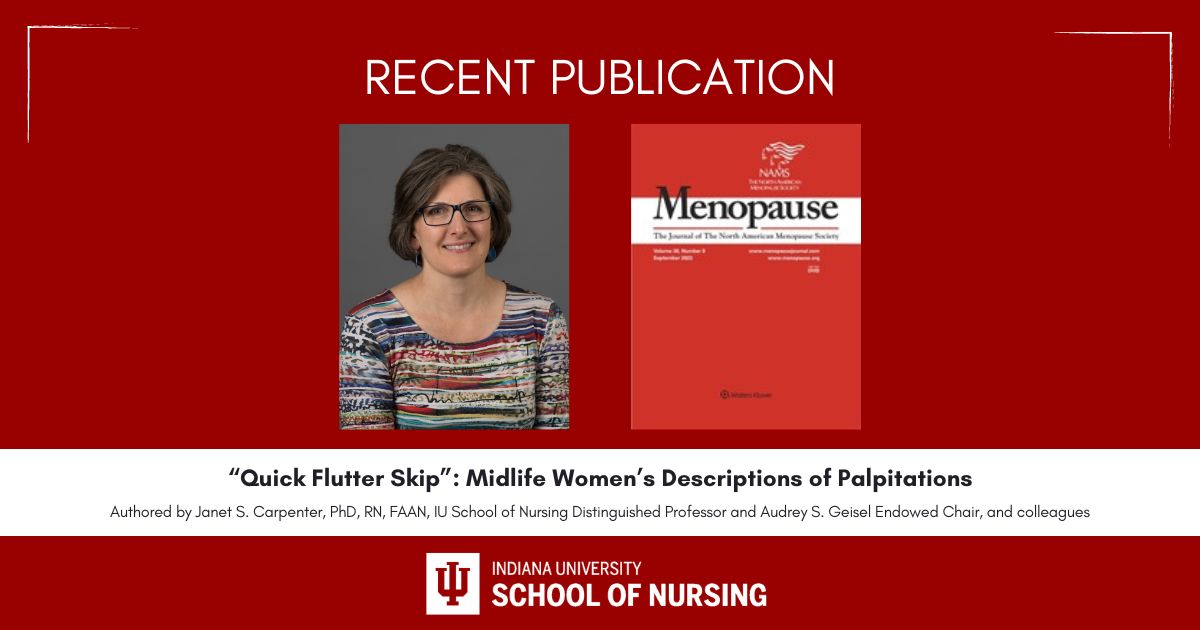A new study examines menopause-related heart palpitations.
Menopause: It’s a rite of passage for every woman, with many experiencing uncomfortable symptoms that can last for seven to 10 years. Historically, many women have ignored or dismissed their own symptoms, “many of which can be treated,” says IU School of Nursing Distinguished Professor and Audrey S. Geisel Endowed Chair, Dr. Janet S. Carpenter.
In a new research report, entitled “Quick Flutter Skip”: Midlife Women's Descriptions of Palpitations, Dr. Carpenter and colleagues examine how women experience menopause-related palpitations (a heightened awareness of your own heartbeat caused by rapid, irregular, or exaggerated heartbeats) – a symptom experienced by nearly half of menopausal women.
“We chose this topic” she says, “because there haven’t been any reports of how women talk about their palpitations.”
Dr. Carpenter interviewed 14 menopausal women, asking them to describe their feelings when experiencing palpitations. “We found that women had trouble describing their own palpitations,” she says.
Most importantly, half of the women had not yet talked to their healthcare provider about their symptoms – often describing extreme scenarios in which their symptoms would have to get much worse before they would feel comfortable sharing the information with their healthcare provider.
“In other words, they were dismissing their own symptoms as not being important. There are things that we can do to help women feel better,” says Carpenter, “if we can first understand what they are feeling.”
You can read more about Dr. Carpenter’s research here in Menopause journal. Dr. Carpenter and colleagues have a companion study to “Quick Flutter Skip,” in which women are wearing a heart monitor for several days, in an effort “to learn what the heart is doing when women feel these palpitations,” she says.


